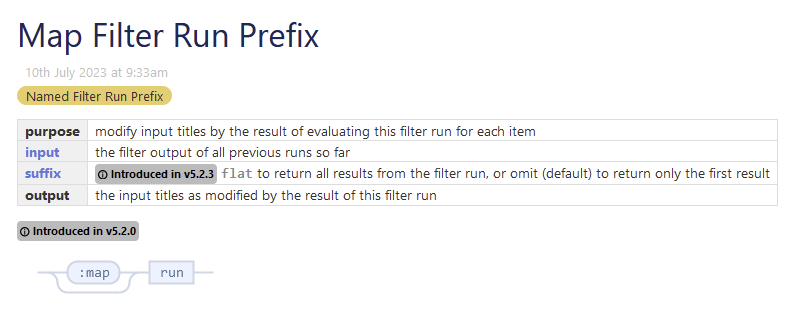Many times I do filter code that could be set like that:
\function .myFunction(param)
[do[something]with<param>]
:map[all[current]enjoy<currentTiddler>doing[stuff]enlist-input[]join[ ]]
\end
.myFunction takie a parameter and create a list of titles. The parameter has to be tweaked, and this is what does the first line. The second line would use the tweaked value to do the real stuff and its results is a list of titles. I need to use :map to access tghe tweaked value and use it on the current input values with the help of all[current].
But since I use :map I have to do the enlist-input[]join[ ] in the end.
It could be simpler with a :as filter run call that would act as :map in the coding but return, for each input value, all the titles selected at te end of each run. The :as name is surely to be replaced by a more clever name but you get tghe idea.
For instance:
[enlist[Examples Operator Prefix] :as[suffix<currentTiddler>]
wold return all the tiddlers finishing by Examples or Operator or Prefix.
